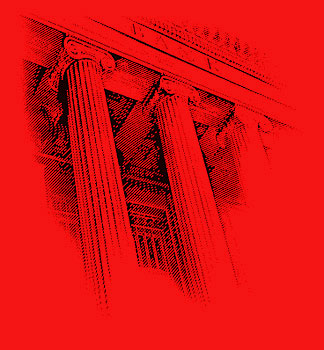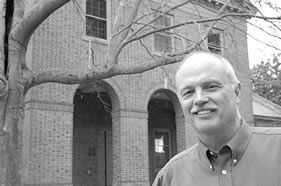
Does the Bailout Bill Mark the End of America as We Know It?
- June 4, 2016
- 0
by Richard C. Cook
 OCTOBER 1, 2008—Tonight the Senate passed the $700 billion Wall Street bailout bill by a vote of 74-25. This follows the rejection of the bill by the House on Monday. In an MSNBC poll, 62 percent of Americans oppose the giveaway, but the lobbyists are doing everything possible to assure the rejection is overturned. According to Bob Borosage, co-director of The Campaign for America’s Future, House leaders “are bringing in the small business lobby and the banking lobby to buy the twelve Republican votes they need.”
OCTOBER 1, 2008—Tonight the Senate passed the $700 billion Wall Street bailout bill by a vote of 74-25. This follows the rejection of the bill by the House on Monday. In an MSNBC poll, 62 percent of Americans oppose the giveaway, but the lobbyists are doing everything possible to assure the rejection is overturned. According to Bob Borosage, co-director of The Campaign for America’s Future, House leaders “are bringing in the small business lobby and the banking lobby to buy the twelve Republican votes they need.”
The Senate took up the bill in order to pressure House members who voted against it to change their positions when it returns to a vote on the House floor on Friday. This procedure may be unconstitutional, because revenue bills must originate in the House, but there is no time or political will for anyone to mount a challenge on constitutional grounds. As another means of inducement—or blackmail—the bill includes the repeal of the wildly unjust alternative minimum tax.
Every reputable economist commenting on the bill opposes it, including NYU’s Nouriel Roubini, who says the plan is “totally flawed.” He says the plan is:
“a disgrace: a bailout of reckless bankers, lenders, and investors that provides little direct debt relief to borrowers and financially stressed households and that will come at a very high cost to the US taxpayer.”
My own view is that the plan is worse than that: a crime; grand larceny on a monumental scale.
Here’s why: We know that the debacle started with homeowner defaults on subprime mortgages and that it has now spread to other types of mortgages as foreclosures escalate. We know that the unhealthy use of subprime mortgages started during the Clinton administration, as did the bundling and sale of these mortgages into mortgage-backed securities sold in the financial markets.
What has not been reported is that it had to have been the Bush administration that turned these acts of reckless lending into a national program of mortgage fraud. Soon after George W. Bush became president in 2001, meetings at the White House between Federal Reserve Chairman Alan Greenspan and administration officials became more frequent. According to mortgage industry insiders I have interviewed, direction soon began to come down from the banks to mortgage brokers to falsify borrower income information to allow them to qualify for loans that were otherwise out of reach. Someone at a very high level had to start the ball rolling. The banks would not have done it on their own without political clearance. That is not the way the system works.
The FBI has investigations underway to prosecute some of these cases of mortgage fraud. But they are not reaching above the brokers’ level. The FBI is not gaining access—or at least they have not reported it publicly—to information about collusion at the political level or at the level of the banks which provided the leveraged funding for mortgage money.
But at the time the housing bubble was inflating, no one was blowing the whistle. Note that when Secretary of the Treasury Henry Paulson testified before the Senate Banking Committee last week, he said he was shocked to learn when assuming office in June 2006 that no federal agency regulated mortgage lending. Rather this was a task left to the states.
What Paulson did not say was that when the states attempted to intervene, they were blocked by the Treasury Department’s Office of the Comptroller of the Currency. In a February 14 article in the Washington Post written before he resigned due to a sex scandal, New York governor Eliot Spitzer wrote:
“In 2003, during the height of the predatory lending crisis, the OCC invoked a clause from the 1863 National Bank Act to issue formal opinions preempting all state predatory lending laws, thereby rendering them inoperative. The OCC also promulgated new rules that prevented states from enforcing any of their own consumer protection laws against national banks. The federal government’s actions were so egregious and so unprecedented that all 50 state attorneys general, and all 50 state banking superintendents, actively fought the new rules. But the unanimous opposition of the 50 states did not deter, or even slow, the Bush administration in its goal of protecting the banks. In fact, when my office opened an investigation of possible discrimination in mortgage lending by a number of banks, the OCC filed a federal lawsuit to stop the investigation.”
Why did the Bush administration do this? The only possible answer is that it had every intention of producing the housing bubble, one that had the effect of not only inflating the cost of homes and real estate but also pumping billions of dollars of borrowed cash into the economy through mortgage and home equity loans.
The bubble enriched huge numbers of executives, managers, and shareholders throughout the financial and real estate industries, and provided jobs to millions of people. The bubble also brought back foreign capital to U.S. markets that had been scared away by the dot.com bust of 2000-2001.
Everyone seemed to benefit, but it was those at the top who skimmed the greatest profits. And for an economy that had already given away millions of its best manufacturing jobs through NAFTA, Most-Favored-Nation trading policies with China, World Trade Organization agreements, etc., the bubble acted as a kind of substitute economic engine.
It also resulted in tax revenues that allowed the Bush administration to implement its 2001 and 2003 tax cuts for the rich and provide funding for the Afghanistan and Iraq wars. Of course these tax revenues were not enough, as the national debt soared to over $9 trillion during the Bush years as well.
Economist Dean Baker of the Center for Economic and Policy Research makes the point:
“The near hysterical discussion (count the times ‘Great Depression’ appears in news stories) of the bailout still largely fails to recognize the roots of the economy’s current problems in the collapse of the housing bubble. Much of the discussion assumes that the problem is just bad subprime loans and that house prices will bounce back once the credit markets are working properly.”
The point is critical, because what the Senate and House leaders are telling us, as are President George W. Bush, presidential candidates Barack Obama and John McCain, and Federal Reserve Chairman Ben Bernanke, is that the bailout is to get the American economy moving again. Credit, they say, is the lifeblood of the economy, and without credit no one can make a move.
But credit is the sole lifeblood of the economy only when people are broke. Purchasing power in the U.S. has collapsed, and it will get worse as the recession which has now begun picks up speed.
People can’t get loans, not because the credit markets are stalled, but because they have no savings for down payments and can’t afford to repay what they wish to borrow. If they could repay their loans, plenty of credit would be available. But there is no money—and no savings—within the economy for it to get moving again. The only possible source is more federal borrowing to prime the pump Keynesian-style. That is what the politicians claim the bailout will do. But it won’t.
Then what is happening?
What seems to be happening is that the Bush administration is engineering a massive raid on the Federal treasury to pay off the people within the financial industry who have been operating the housing scam because the politicians told them to do it. This is hush money.
The people in the financial institutions who are getting the money will be passing it on to the big banks that leveraged their criminal lending practices. The giant sucking sound you hear is almost a trillion dollars of future taxpayer earnings going into the vaults of the nations’s biggest banks, such as Citibank, Bank of American, and—the pet bank of the Rockefeller family—J.P. Morgan Chase.
And these banks have no intention of recycling the money into productive investments. Despite the political posturing, where much of the money will go at the second or third tier is into executive salaries and bonuses. The economy is crashing, and the fat cats are “gittin’ out while the gittin’s good.”
What happens next?
Well, it is already happening. In the post-bubble era there will be no more economic engines for the American economy. A long term recession and depression are inevitable, and they are expected by those in the know. In fact, there has been a plan in the works for a very long time to bring down the U.S. economy, and it will be happening over the coming months.
People need to take whatever measures they can to cut their cost of living, get out of debt, and protect themselves and their families. P
® 2008 by Richard C. Cook
Cook
Richard C. Cook is a former U.S. federal government analyst, whose career included service with the U.S. Civil Service Commission, the Food and Drug Administration, the Carter White House, NASA, and the U.S. Treasury Department. His articles on economics, politics, and space policy have appeared in numerous websites and print magazines. His book on monetary reform, entitled We Hold These Truths: The Hope of Monetary Reform, will soon be published. He is the author of Challenger Revealed: An Insider’s Account of How the Reagan Administration Caused the Greatest Tragedy of the Space Age, called by one reviewer, “the most important spaceflight book of the last twenty years.” His website is www.richardccook.com. Comments or requests to be added to his mailing list or to purchase his special report on the 2008 election may be sent to [email protected]



